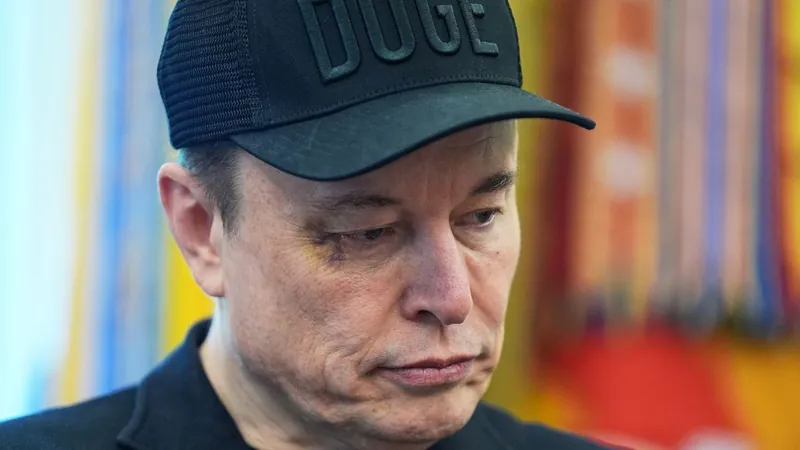
Senate Approves $10 Billion for Moon Missions, Defying Musk's Concerns
2025-07-02
Author: Benjamin
Big Bucks for Lunar Exploration
In a decisive move, the US Senate has allocated an impressive $10 billion for Moon missions, setting the stage for groundbreaking exploration—despite notable dissent from billionaire entrepreneur Elon Musk.
Funding Breakdown Revealed
Nearly half of this substantial funding, about $4.1 billion, is earmarked for the construction of two Space Launch Systems (SLS) rockets, designated for the Artemis IV and V missions. This funding is crucial as the SLS remains the only rocket capable of safely transporting astronauts to the Moon.
Gateway to Future of Space
An additional $2.6 billion will go to the Gateway space station, the first international lunar outpost. According to Senate statements, the Gateway is deemed essential for establishing a long-term human presence on the Moon.
Musk's Dismay and Industry Backlash
Elon Musk, who has openly criticized the SLS rockets, expressed his disappointment by stating they make him 'sad' due to their non-reusable nature, highlighting the costly implications of launching a billion-dollar rocket each time. Moreover, Musk has advocated for prioritizing missions to Mars over the International Space Station.
Political Tensions on Display
This funding initiative follows a very public spat between Musk and US President Donald Trump, who proposed cuts to Artemis missions in the initial budget review. Despite these tensions, the latest Senate decision demonstrates a commitment to advancing lunar exploration.
Future Missions at Risk
Previously, NASA’s budget request allowed only for the Artemis II mission, which is scheduled for 2026, and Artemis III, aimed at returning humans to the lunar surface by 2027. However, earlier cuts had threatened future missions like Artemis IV.
European Concerns
Experts from the European Space Agency (ESA) raised alarms that cuts to NASA's Artemis program could jeopardize Europe’s guaranteed presence in cislunar space. The ESA has a vital role in supplying the European Space Modules that provide essential support for NASA’s missions, and any reductions in funding could halt key production lines for this hardware.
Importance of Ongoing Investment
As the Senate pushes forward with this funding, experts agree that maintaining support for lunar missions is not just a matter of national pride—but a crucial step towards ensuring collaborative international presence and technological advancements in space exploration.









 Brasil (PT)
Brasil (PT)
 Canada (EN)
Canada (EN)
 Chile (ES)
Chile (ES)
 Česko (CS)
Česko (CS)
 대한민국 (KO)
대한민국 (KO)
 España (ES)
España (ES)
 France (FR)
France (FR)
 Hong Kong (EN)
Hong Kong (EN)
 Italia (IT)
Italia (IT)
 日本 (JA)
日本 (JA)
 Magyarország (HU)
Magyarország (HU)
 Norge (NO)
Norge (NO)
 Polska (PL)
Polska (PL)
 Schweiz (DE)
Schweiz (DE)
 Singapore (EN)
Singapore (EN)
 Sverige (SV)
Sverige (SV)
 Suomi (FI)
Suomi (FI)
 Türkiye (TR)
Türkiye (TR)
 الإمارات العربية المتحدة (AR)
الإمارات العربية المتحدة (AR)